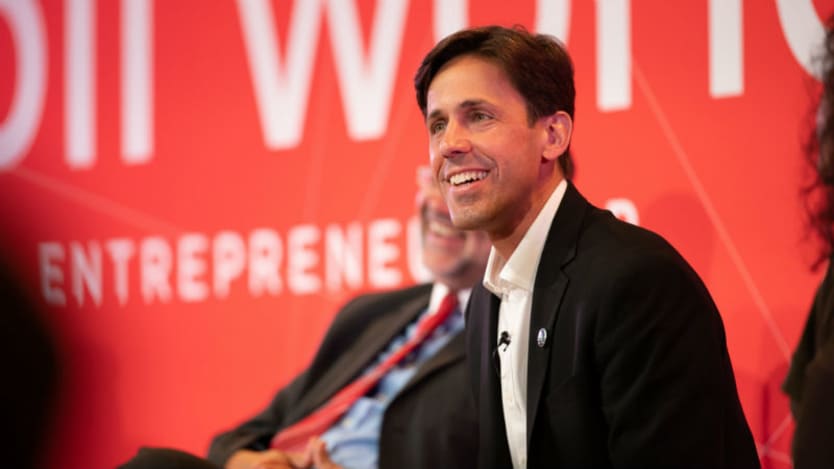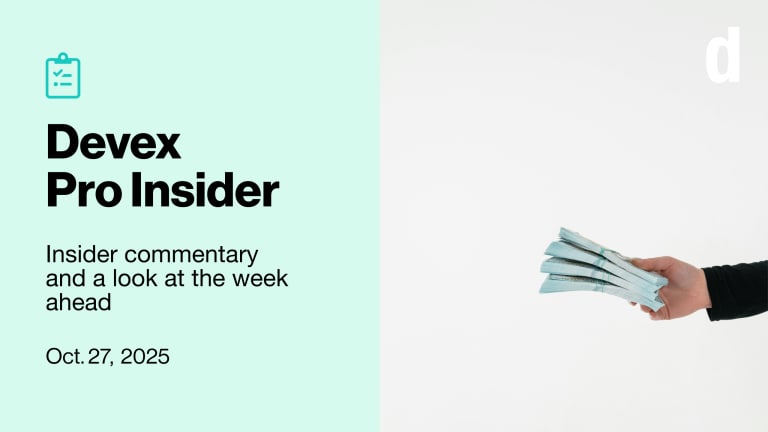
OXFORD, United Kingdom — CEO of the Obama Foundation David Simas advised NGOs and advocacy organizations with global missions to focus on building trust at the community level in order to face down the rising tide of populism in both key donor states and the localities they work in.
“Unless NGOs can build a community-type of cohesion, then they’re always an outside organization trying to be helpful. And that’s just not the right place to be in moments like this.”
Populist movements, such as those associated with the United Kingdom’s exit from the European Union and the elections of U.S. President Donald Trump, Philippine President Rodrigo Duterte, and others have resulted in deep cuts to foreign aid, shoring up of powerful economies, and curbing of international civil society spaces. This has left international aid and advocacy organizations asking whether overseas aid may be swept up in a rapid global retreat.
Read Devex coverage of the Skoll World Forum:
▶ What are the secrets to nonprofit startup success?
▶ Beyond #MeToo: Female leaders talk about what needs to happen next
Simas said that in the undeniable trend toward populism — which signals at its essence a disconnect between communities — aid organizations should audit their own relevance to the communities they serve.
“In any NGO, having a reservoir of trust in the communities that they’re working in, in some ways, is [the] most important response,” Simas told Devex on the sidelines of the Skoll World Forum in Oxford.
Simas, the former White House political director under U.S. President Barack Obama, leads the foundation. Established in 2014, it seeks to “carry on the great, unfinished project of renewal and global progress” and oversee the construction of the Obama Presidential Center in Chicago, Illinois. Simas spoke at a panel discussion at the Skoll World Forum titled “Democracy in Crisis? Populism, Polarization, and Civic Engagement,” on ways to prevent and combat attacks from populist political entities or politicized media.
He said organizations should develop a “trust strategy” by utilizing global networks of beneficiaries, partners, and community members to continuously legitimize the work of the NGO. This would also expose the partners’ respective communities — where some members may harbor doubts or be susceptible to populist messaging — to the work of the organization.
Simas said organizational leaders should confront the populist messaging in a straightforward way, by saying “This isn’t talking points, this isn’t rhetoric, this is my response to these [attacks].”’
“There’s a deeper current they need to be completely mired in, and that needs to be part of their strategy,” he said. “Just as teams build a communications strategy, they have to ask: ‘What is my proximity strategy? What is my trust strategy?’”
At the same time, he said organizations shouldn’t conduct this work “in a transactional way,” and instead should operate “in a way that allows those moments to occur.” When organizations create a network of “real validators,” he said, these volunteers, employees, beneficiaries, and community members will act “not because I ask them to, but because they want to stand up and say, ‘this is wrong and here’s why,’” he told Devex. “That’s the sweet spot.”
Such strategies, Simas added, will also help combat an unfortunate trend in many international advocacy and aid NGOs, which is to “tell people what they need” — an issue that populists latch onto when galvanizing opposition to aid work.
“Something the populist completely understands and understands very well is that sense of what the people are feeling, because in a sense they’re telling you, and the challenge then is to take that sentiment and use it in a way that builds community or enhances a sense of trust,” he said.
Where that isn’t possible, he said — where mistrust is felt at a deeper level in the community — the first step is “to engage in those elements of society, where you are totally listening to what people are feeling, and to structure what you are doing around those sentiments, rather than the other way around,” Simas said.
“The second step is, in each one of these communities, there are ambitious young people that have something that no NGO has: trust. Nurture, cultivate, build, and empower, and then connect her with someone in the community next door,” he said.
This way, Simas argued, NGOs can begin to build bridges between local communities. “This isn’t an isolated activity — this is a global network,” he said.
He added that “the beauty of social media and social networks is that it now gives us the ability to take those disparate individuals in 10,000 communities and connect them to something much bigger about shared values.”
Editor's note: Devex traveled to the Skoll World Forum with the support of the Skoll Foundation. Devex retains full editorial independence and responsibility for this content.








